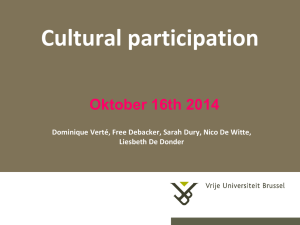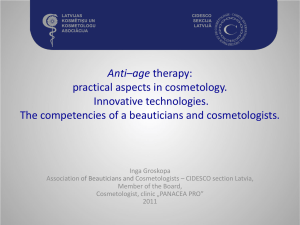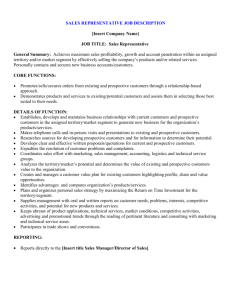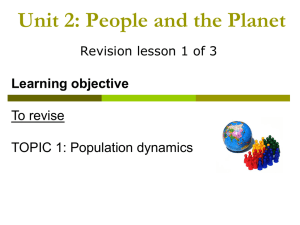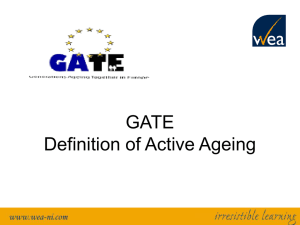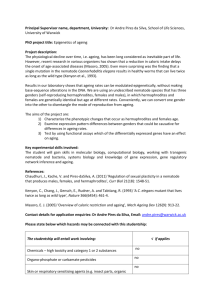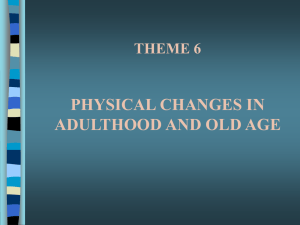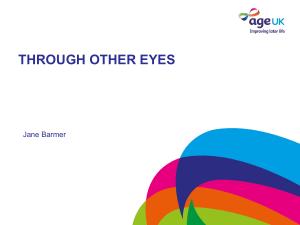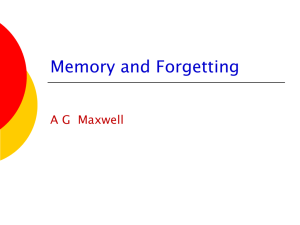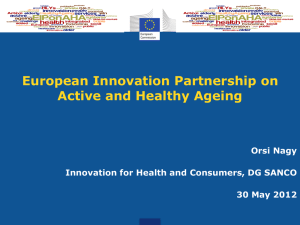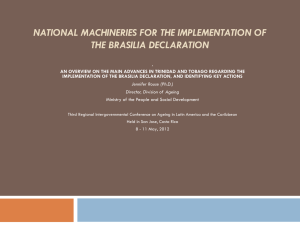Positive Ageing
advertisement
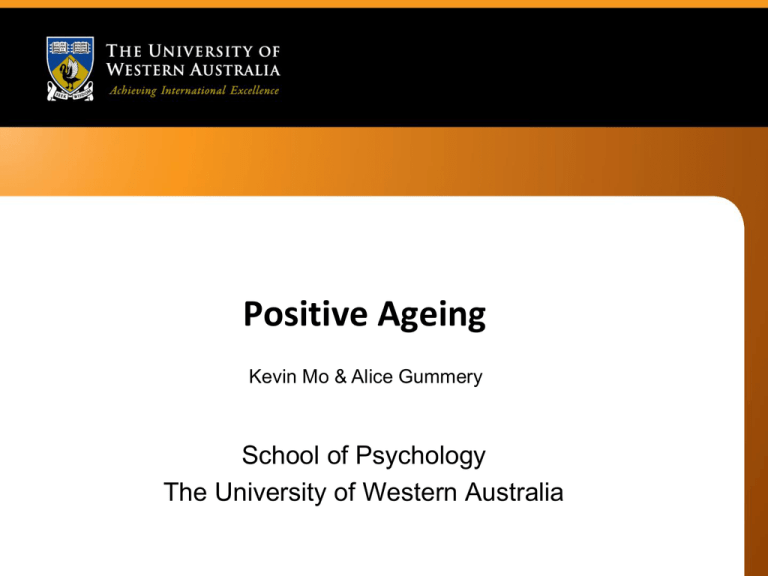
Positive Ageing Kevin Mo & Alice Gummery School of Psychology The University of Western Australia What is ‘normal’ ageing? • What do you think are some of the normal changes as we age? What is normal? Normal Not so normal Gradual changes in memory capacity Loss of memory Becoming disoriented (confusion) Changes in speed of thinking Less sociable, isolated Changes in social functioning Depression Changes in emotional functioning Dementia Wisdom remains, and even increases What can we do to help with these changes? • When learning new things: don’t rush, avoid distractions • Use mnemonic devices • Keep “to do” lists / use “post-its” • Use a calendar/diary/mobile device • Stay active, social, and healthy – e.g., Men’s Shed! • Don’t buy into ageist stereotypes! What is the role of emotions? • Memory • Thinking • Interpretation • Attention • Sleep • Health Strategies for Optimising Mental & Emotional Health • Physical exercise (especially aerobic exercises) – Take the stairs rather than the lift – Gardening • Maintaining social connections – Frequent interaction with family, friends and work colleagues. – Engaging in social activities • Stimulating mental activity – Learning a new hobby – Problem solving activities • Eating a healthy diet – Fruits and vegetables – Foods high in omega 3 (salmon, kiwi fruit and walnuts) Positive Ageing REMEMBER: Talk to your doctor, reduce stress, take care of your body, get connected to the community, and set small goals!! Our team’s research Healthy Ageing Research Project (HARP) • Thinking skills as we age • Prospective Memory and healthy ageing* • Awareness of Prospective Memory • Sleep and Prospective Memory I need to remember buy milk on the way home Prospective Memory and Ageing • Old vs. Young • How does Prospective Memory change as we age? • How does it relate to other abilities? • Is it sensitive to things like dementia? Our Research • Prospective Memory and how well people take their medications • Prospective Memory and Multi-tasking West Australian Participant Pool • BUT… • We need volunteers • Exploring the mind with WAPP • http://wapp.psychology.uwa.edu.au/wo rdpress One volunteer says… “Of course, the University has easy access to young volunteers but they need more older people. The projects are very interesting and quite good fun - I recommend being a volunteer! The tests usually last about one hour - why not have a go?” J. Griffiths. How you can help • No participants = no research! • Why people say ‘no’ – – – – – I am too old/young I am not clever enough It will be stressful/embarrassing I won’t have any choice about what I do I won’t be able to change my mind • Thank you for your time and attention • Do you have any questions?
